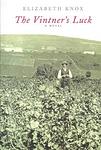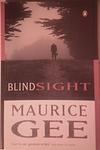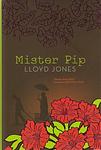The Greatest New Zealander, Austrian "Fiction" Books Since 1980
Click to learn how this list is calculated.
This list represents a comprehensive and trusted collection of the greatest books. Developed through a specialized algorithm, it brings together 300 'best of' book lists to form a definitive guide to the world's most acclaimed books. For those interested in how these books are chosen, additional details can be found on the rankings page.
Genres
Countries
Date Range
Reading Statistics
Click the button below to see how many of these books you've read!
Download
If you're interested in downloading this list as a CSV file for use in a spreadsheet application, you can easily do so by clicking the button below. Please note that to ensure a manageable file size and faster download, the CSV will include details for only the first 500 books.
Download-
1. The Bone People by Keri Hulme
"The Bone People" is a complex, emotional novel that explores the lives of three characters - a reclusive artist, a young mute boy, and his adoptive father - in New Zealand. The narrative delves into themes such as Maori culture, love, violence, and isolation while showcasing the struggle of these individuals as they try to form a family unit despite their personal traumas and societal pressures. The book's unique blend of prose and poetry, along with its blend of English and Maori language, adds to its depth and richness.
-
2. The Piano Teacher by Elfriede Jelinek
"The Piano Teacher" is a dark exploration of power dynamics, sexuality, and repression. The story revolves around a piano teacher at a prestigious music school in Vienna who lives with her overbearing mother in a state of emotional and sexual repression. Her life takes a turn when she becomes sexually involved with a young, self-assured student. The relationship, marked by sadomasochistic games and emotional manipulation, spirals out of control, leading to a tragic end. The book is a profound critique of bourgeois values and the oppressive structures of society.
-
3. Extinction by Thomas Bernhard
"Extinction" is a novel that explores the dark and complex themes of family, identity, and history through the eyes of its protagonist, a professor living in Rome. When he receives news of the deaths of his parents and brother in a car accident, he is forced to confront his past and his Austrian heritage. The narrative delves into his thoughts and feelings, his criticisms of his family and society, and his philosophical musings on life and death, all while he prepares to return to his family's estate for the funeral. The novel is renowned for its dense, stream-of-consciousness style and its unflinching examination of the human condition.
-
4. Concrete by Thomas Bernhard
The book is a darkly introspective narrative that delves into the mind of a reclusive, obsessive intellectual who is struggling to complete his scholarly work on the composer Mendelssohn. As he grapples with his own ailments and the perceived mediocrity of his surroundings, the protagonist's stream-of-consciousness monologue reveals his deep-seated anxieties, self-loathing, and profound isolation. The narrative is a relentless examination of the protagonist's psyche, showcasing his critical view of society and his own personal relationships, which are fraught with tension and dysfunction. Through this, the novel explores themes of artistic creation, intellectual elitism, and the suffocating nature of expectations and familial obligations.
-
5. Woodcutters by Thomas Bernhard
Woodcutters is a darkly humorous critique of Vienna's artistic elite. The story takes place over the course of a single evening, as the narrator attends a dinner party in honor of a recently successful actor. As the evening progresses, he reflects on the pretentiousness and hypocrisy of the guests, the mediocrity of their artistic achievements, and the tragic suicide of his former lover. The novel is a scathing indictment of the vanity and self-delusion of the artistic community.
-
6. Wittgenstein's Nephew by Thomas Bernhard
"Wittgenstein's Nephew" is a semi-autobiographical novel that explores the friendship between the narrator and his friend Paul, who is the nephew of the famous philosopher Ludwig Wittgenstein. The story takes place in Vienna and is set against the backdrop of the Austrian mental health system. The novel delves into themes of sanity, insanity, and the fine line that separates the two, while also offering a critique of Austrian society. It is a meditation on the nature of illness, both physical and mental, and the impact it has on personal relationships and one's perception of the world.
-
7. The Afternoon of a Writer by Peter Handke
"The Afternoon of a Writer" is a contemplative exploration of a day in the life of a solitary writer who, after a successful morning of writing, decides to take a walk through an unnamed European city. As he strolls, he grapples with feelings of alienation and existential dread, questioning his purpose and the worth of his work. The book delves into the writer's inner struggles, his observations of the world around him, and his reflections on the act of writing itself.
-
8. The Last World by Christoph Ransmayr
"The Last World" is a novel that reimagines the exile of the Roman poet Ovid in a remote village at the edge of the Black Sea. The story is set in a mythical time and place, where the villagers are haunted by strange transformations and echoes of Ovid's metamorphoses. The novel blurs the lines between the real and the imaginary, the past and the present, and the world of the living and the dead, creating a surreal and dreamlike atmosphere.
-
9. Lust by Elfriede Jelinek
This book is a provocative exploration of the dynamics of power and desire within the confines of a loveless marriage. Set against the backdrop of the Austrian Alps, it delves into the life of a woman trapped in a relationship with her abusive and unfaithful husband, a powerful paper mill owner. The narrative dissects the commodification of sex, the objectification of women, and the societal structures that perpetuate these themes. Through a stark and unflinching examination of the protagonist's degradation and the pervasive corruption in her world, the novel presents a scathing critique of consumerism, the patriarchy, and the hollow nature of modern relationships.
-
10. The Snows Of Yesteryear by Gregor von Rezzori
"The Snows of Yesteryear" is a memoir that explores the author's complex and tumultuous upbringing in Eastern Europe during the early 20th century. Through a series of vivid and poignant anecdotes, the book delves into the author's personal experiences with war, displacement, and the collapse of the Austro-Hungarian Empire, offering a deeply introspective and nostalgic reflection on the fleeting nature of time and the enduring impact of one's past.
-
11. The Luminaries by Eleanor Catton
Set during the New Zealand Gold Rush of the 19th century, this novel follows Walter Moody, a prospector who stumbles upon a secret meeting of twelve local men who are trying to solve a series of unsolved crimes. As the story unfolds, it becomes clear that the crimes, which include a rich man's disappearance, a prostitute's attempted suicide, and a huge fortune found in a drunkard's cottage, are all interconnected. The novel's complex narrative structure, which uses astrology to organize its characters and events, adds another layer of intrigue to the story.
-
12. The Loser by Thomas Bernhard
"The Loser" is a philosophical novel that revolves around the complex relationship between three friends who are all piano virtuosos. The narrative is driven by the protagonist's obsession with his friend's suicide, which he believes was triggered by the realization that they could never surpass the genius of their third friend. The book delves into the protagonist's psyche as he grapples with themes of talent, ambition, failure, and the destructive power of comparison.
-
13. In The Storm Of Roses by Ingeborg Bachmann
"In the Storm of Roses" is a collection of profound and evocative poems that delve into the complexities of human existence, exploring themes of love, loss, and the enduring human spirit amidst the backdrop of post-war Europe. The poet's masterful use of language and imagery weaves a tapestry of emotion and thought, inviting readers to contemplate the nature of reality, the pain of memory, and the possibility of redemption. Through a blend of personal introspection and universal resonance, the work captures the tumultuous journey of the soul seeking understanding and beauty in a fragmented and often harsh world.
-
14. What Becomes Of The Broken Hearted? by Alan Duff
"What Becomes Of The Broken Hearted?" by Alan Duff is a powerful and gritty novel that delves into the lives of a Maori family living in New Zealand. Set against a backdrop of poverty, violence, and racism, the story follows the struggles and triumphs of Jake, a young man desperate to escape the cycle of despair that has plagued his family for generations. With raw and unflinching honesty, the book explores themes of identity, love, and redemption, painting a vivid and haunting portrait of a community grappling with the consequences of a broken heart.
-
15. Live Bodies by Maurice Gee
In "Live Bodies" by Maurice Gee, a small town in New Zealand becomes the setting for a mysterious and unsettling series of events. As the townspeople grapple with their own secrets and desires, a young girl named Alice discovers a hidden power within herself. As tensions rise and the lines between reality and fantasy blur, Alice must confront the darkness that lurks beneath the surface of her seemingly idyllic community. With rich prose and a captivating plot, "Live Bodies" explores themes of identity, power, and the complexities of human nature.
-
16. The Vintner's Luck by Elizabeth Knox
"The Vintner's Luck" is a captivating novel that follows the life of a young vintner named Sobran, who forms an unlikely friendship with an angel named Xas. Set in 19th century France, the story explores themes of love, passion, and the pursuit of dreams as Sobran navigates the challenges of winemaking and the complexities of his relationships with both mortals and celestial beings. Through beautifully descriptive prose and rich character development, the book delves into the intricacies of the human spirit and the intertwining of the mundane and the divine.
-
17. Harlequin Rex by Owen Marshall
"Harlequin Rex" is a captivating novel that explores the life of a man named Rex, who is born with a rare condition that causes him to have a clown-like appearance. Despite the challenges he faces, Rex embarks on a journey of self-discovery and acceptance, navigating through a world that often judges based on appearances. Through his unique perspective and experiences, the book delves into themes of identity, love, and the complexities of human relationships.
-
18. The Book Of Fame by Lloyd Jones
"The Book of Fame" by Lloyd Jones is a captivating novel that delves into the lives of the 1905 All Blacks, New Zealand's first national rugby team. Through a series of interconnected stories, the book explores themes of fame, identity, and the impact of sport on society. It offers a unique perspective on the players' journey to international recognition, their struggles, triumphs, and the lasting legacy they leave behind. With its lyrical prose and rich characterization, this book is a celebration of both rugby and the human spirit.
-
19. The Shag Incident by Stephanie Johnson
"The Shag Incident" by Stephanie Johnson is a captivating coming-of-age novel that follows the journey of a young woman named Emma as she navigates the complexities of love, friendship, and self-discovery. Set in a small coastal town, Emma finds herself entangled in a scandalous affair that challenges her perceptions of morality and forces her to confront her own desires. With richly developed characters and an engaging plot, this thought-provoking novel explores themes of identity, societal expectations, and the consequences of our actions.
-
20. Stonedogs by Craig Marriner
"Stonedogs" by Craig Marriner is a gritty and atmospheric novel set in New Zealand, following the lives of a group of disillusioned young people living on the fringes of society. The story delves into their struggles with addiction, violence, and the search for meaning in a world that seems to offer them little hope. With vivid and raw prose, Marriner explores the complexities of human nature and the consequences of one's choices, ultimately painting a haunting portrait of a generation lost in a haze of drugs and desperation.
-
21. Slow Water by Annamarie Jagose
"Slow Water" is a captivating novel that follows the journey of a young woman named Sophie as she navigates the complexities of love, desire, and self-discovery. Set in a small coastal town, the story unravels through Sophie's encounters with various characters, each with their own secrets and desires. Through lyrical prose and intricate storytelling, the book explores themes of identity, sexuality, and the power dynamics that shape our relationships. As Sophie delves deeper into her own desires and confronts societal expectations, she begins to question the boundaries of love and the true nature of intimacy.
-
22. Tu by Patricia Grace
"Tu" is a heartfelt novel that explores the life of a young Maori boy named Tu, who is raised by his grandparents in rural New Zealand. Set in the 1960s, the story follows Tu's journey as he navigates the challenges of growing up in a changing society, grappling with his identity, and finding his place within his community. Through vivid storytelling and rich cultural references, the novel delves into themes of family, tradition, and the enduring power of love and resilience.
-
23. Blindsight by Maurice Gee
In a dystopian world where a mysterious disease has left people blind, a young boy named Theo possesses the ability to see. As he navigates through a society that fears and shuns him, Theo discovers a hidden underground community of others with sight. Together, they embark on a dangerous journey to uncover the truth behind the epidemic and restore hope to their shattered world. This captivating novel explores themes of resilience, acceptance, and the power of perception.
-
24. Mister Pip by Lloyd Jones
In a war-torn village on a remote island, a young girl named Matilda finds solace and escape in the pages of a book called "Great Expectations". Taught by a mysterious and charismatic teacher, Mr. Watts, Matilda becomes enthralled by the story and its protagonist, Pip. As the conflict escalates and the outside world encroaches upon their isolated community, the power of literature and the transformative impact of storytelling are revealed, leaving a lasting impression on Matilda and those around her.
-
25. Opportunity by Charlotte Grimshaw
"Opportunity" is a gripping novel that delves into the lives of a wealthy New Zealand family, exploring themes of ambition, betrayal, and the pursuit of success. As secrets unravel and hidden desires come to light, the characters navigate a world of privilege and power, where choices made in the pursuit of opportunity have far-reaching consequences. With its compelling narrative and complex characters, this book offers a thought-provoking exploration of the lengths people will go to in order to seize their chance at success.
Reading Statistics
Click the button below to see how many of these books you've read!
Download
If you're interested in downloading this list as a CSV file for use in a spreadsheet application, you can easily do so by clicking the button below. Please note that to ensure a manageable file size and faster download, the CSV will include details for only the first 500 books.
Download





















